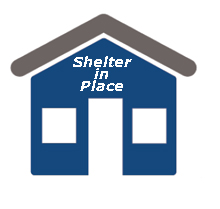Anxiety is high as families shelter in place to try to slow down the spread of COVID-19. Schools are closed as are many places of business. Huge numbers of workers are being laid off from their jobs, so, in addition to worrying about the virus, they are worried about how they will house and feed their families. The economy is at an unprecedented low and people are losing their retirement savings.
As if the economic problems weren’t enough, many people are working from home while trying to teach and entertain their children. These activities are difficult, if not impossible, to accomplish at the same time.
Fear of contracting the virus is on everyone’s mind as well and trying to follow the guidelines laid out by the city, county, state and federal governments, which do not always match, is also very difficult.
There are days when the stress, anxiety, fear and frustration seem like too much to handle. The tips below might help.
Set a new schedule if it’s impractical to stick with the old one – Because we are creatures of habit, it’s stressful when we don’t know what to do and when. Set a daily schedule, however detailed you feel necessary, to maintain a sense of purpose and combat restlessness.
Use this time to tackle projects you’ve been wanting to do – This is a good time to do all those things you’ve wished for the time to accomplish. Clean out the closets or garage. Gather items to donate. Try those new recipes. Clean out flowerbeds. Re-organize the kitchen cabinets. Getting these things done will not only provide a sense of accomplishment, it will also curb boredom and keep your mind occupied.
Stay in touch with family and friends – Even though you can’t visit in person, stay in touch with family and friends through texts, phone calls or Facetime. Staying in touch is important for you and those you care about and it helps push away feelings of isolation.
Don’t watch too much news – Decide how many newscasts you feel you should watch or listen to each day and stick to it. If it’s two, turn off the television or change the channel when they are over. Do not have news playing in the background. You have to take a break from it. Too much news is overwhelming and can have dangerous negative mental effects. Apply the same rule to social media and the negative, often hateful, items posted. If social media is an entertainment source for you, either ignore negative items or change your settings, to avoid them.
Go outside and move around – We do have to stay at home, but not inside. Go for a walk to get your blood flowing and release some tension. If you cannot exercise outside, do yoga, stretching or deep breathing or exercise videos inside.
Do things that have helped you relax in the past – Pray, take a warm bath, have a cup of herbal tea, meditate, read, watch a movie. We all like different things. Do what you enjoy. Take care of yourself by getting plenty of sleep and eating healthy foods.
Talk to your primary care physician – If the fear, depression, stress and anxiety become more than you can handle on your own, or if they become overwhelming, call your doctor for a referral to a mental health professional. Therapists are providing virtual counseling and are available to help.
Be sure to follow the advice of local health authorities – Stay at home unless you have to be out. Practice social distancing in all activities.
If you, or someone you care about, are feeling overwhelmed with emotions like sadness, depression, or anxiety, or feel like you want to harm yourself or others call 911
Sources: https://abcnews.go.com/US/wireStory/today-sheltering-place-amid-pandemic-69713980


